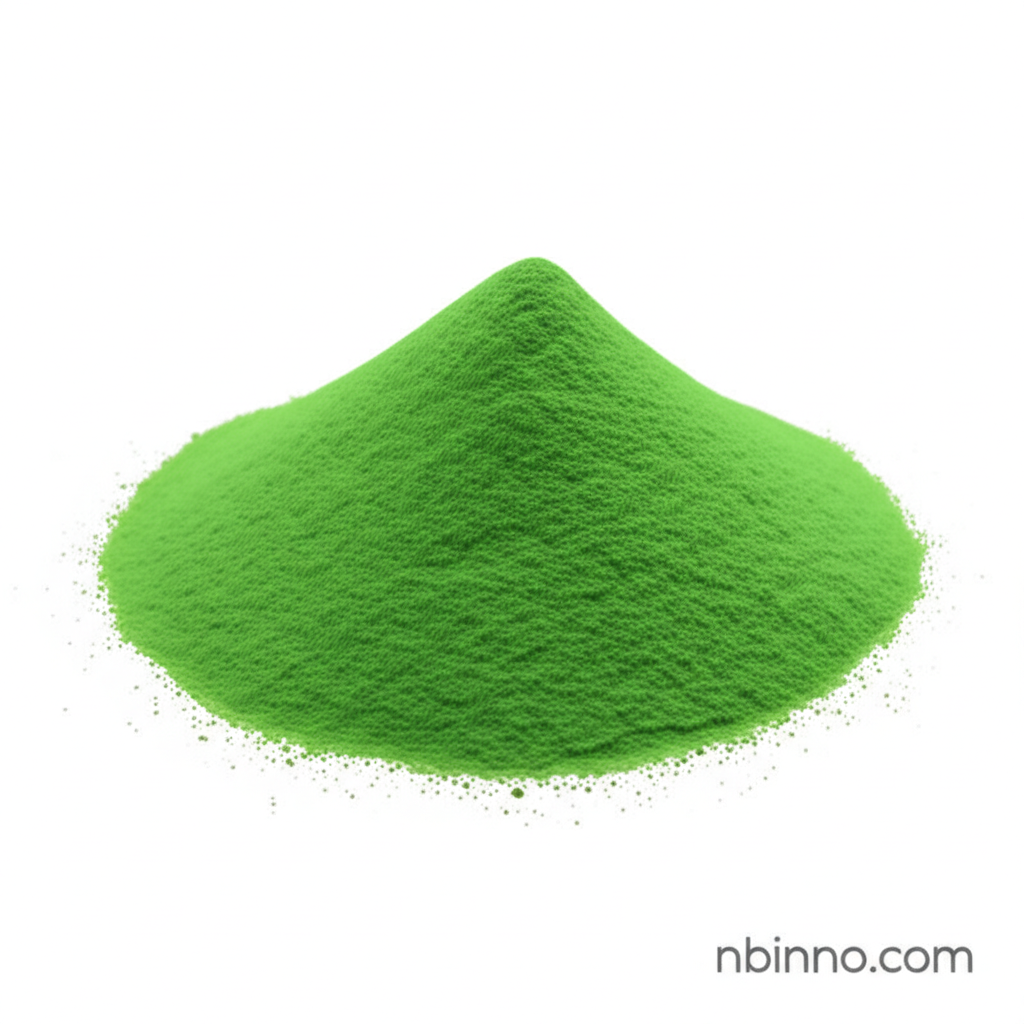Ferrous Sulfate Heptahydrate: A Versatile Coagulant for Water Treatment and Agriculture
Discover the essential role of green vitriol in purifying water and enhancing plant health. Explore its wide-ranging applications.
Get a Quote & SampleProduct Core Value

Ferrous Sulfate Heptahydrate
Ferrous Sulfate Heptahydrate, also known as green vitriol, is a crucial chemical compound with extensive applications in both water treatment and agriculture. Its efficacy as a coagulant and flocculant makes it invaluable for purifying water sources, while its role in addressing plant nutrient needs is equally significant.
- This chemical acts as a powerful coagulant for wastewater treatment, helping in the removal of suspended solids and improving water clarity.
- It is instrumental in phosphate removal, a key step in preventing eutrophication in water bodies.
- Farmers rely on it to correct iron deficiency in plants, a common issue leading to yellowing leaves and stunted growth, thus improving crop yield and quality.
- This compound is also used to control odors in water treatment processes by preventing the formation of hydrogen sulfide.
Product Advantages
Enhanced Water Quality
By efficiently removing contaminants like phosphates and suspended particles, it significantly enhances the quality and safety of treated water, crucial for water treatment agent applications.
Boosted Plant Health
As a readily available source of iron, it directly combats iron chlorosis, ensuring plants receive essential nutrients for photosynthesis and overall vigor, supporting agricultural micronutrients needs.
Cost-Effective Solution
Ferrous Sulfate Heptahydrate offers an efficient and economical way to achieve critical treatment goals in both industrial and agricultural settings, making it a popular choice for various industrial chemical suppliers.
Key Applications
Water Purification
Used as a coagulant and flocculant to remove suspended solids, improve clarity, and reduce turbidity in drinking water and industrial effluents, aligning with sustainable water management practices.
Agriculture & Horticulture
Essential for correcting iron chlorosis, a deficiency causing yellowing of leaves, thereby promoting healthier plant growth and higher yields through its role in plant nutrition and health.
Wastewater Treatment
Effectively removes phosphates, reduces odor by inhibiting hydrogen sulfide, and aids in sludge conditioning in municipal and industrial wastewater, supporting inorganic chemical manufacturing processes.
Pigment and Feed Production
Serves as a raw material for inorganic pigments and acts as a vital iron fortifier in animal feed to prevent anemia.
